Zhang Jun urges judicial readiness among young judges to support high-quality development
The third lecture of the 2025 judges’ forum hosted by the Supreme People’s Court (SPC) was held on May 29 to discuss the judicial response to emerging challenges. Zhang Jun, president of the SPC, addressed the event.
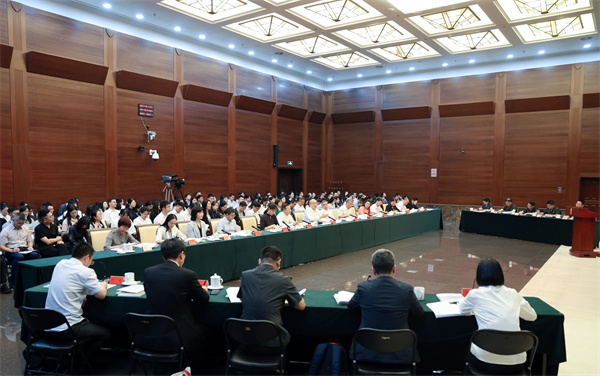
The third lecture of the 2025 judges’ forum hosted by the Supreme People’s Court (SPC) is held on May 29 to discuss the judicial response to emerging challenges. Zhang Jun, president of the SPC, addresses the event. [Photo/court.gov.cn]
During the forum, frontline judges shared their experiences in addressing new and complex issues such as data protection, disputes related to the platform economy, patent litigation, and financial risk control. They highlighted the judiciary’s proactive efforts to recognize change, adapt scientifically, and actively innovate. Legal experts and scholars offered commentary and engaged in discussions with the judges.

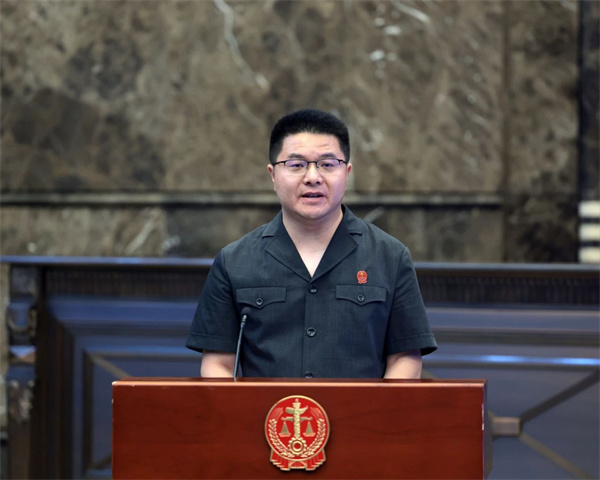
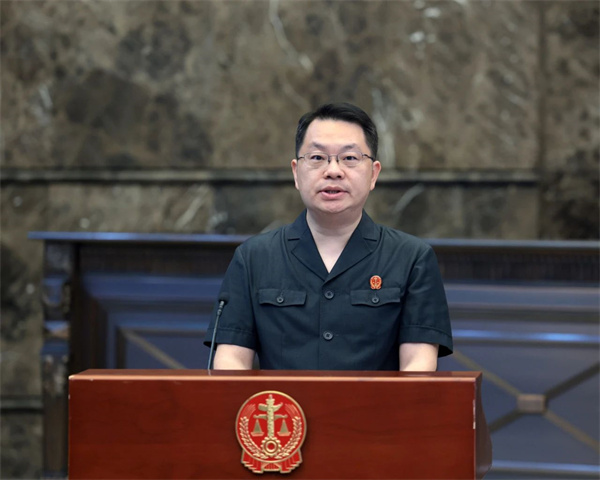
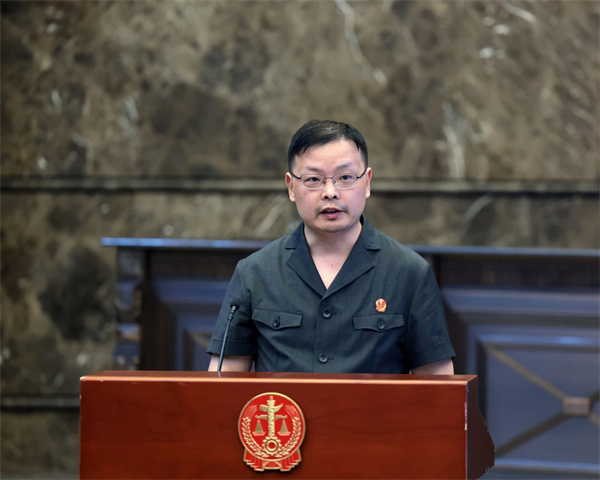
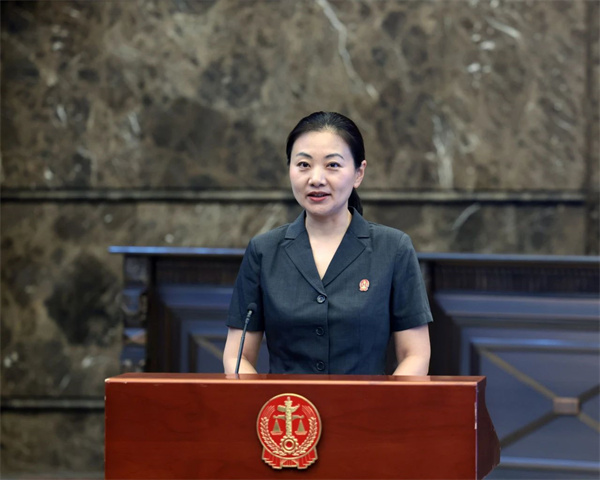
Frontline judges including Li Yingxin, Wei Langping, Zhao Liang, Xu Hao and Zhang Lingling share their experiences in addressing new and complex issues such as data protection, disputes related to the platform economy, patent litigation, and financial risk control at the forum. [Photo/court.gov.cn]
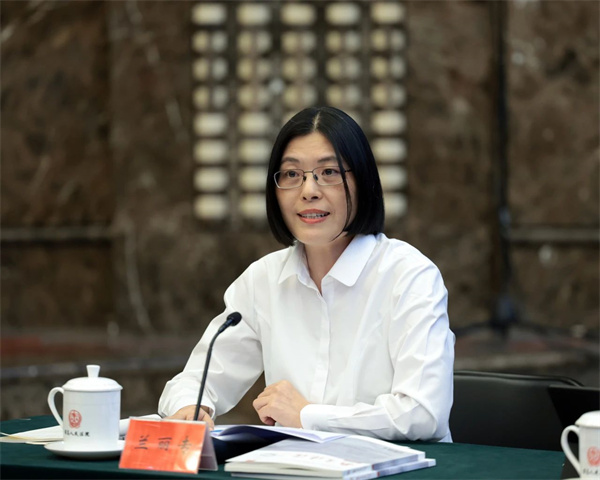
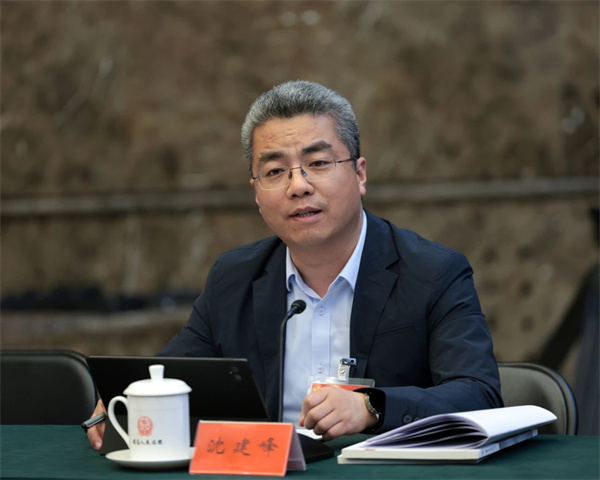
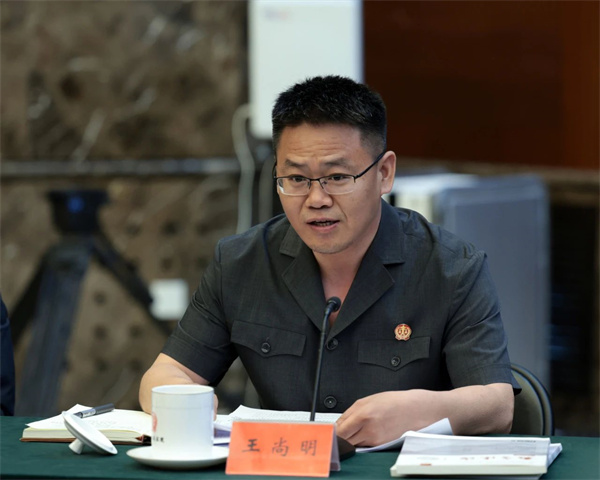
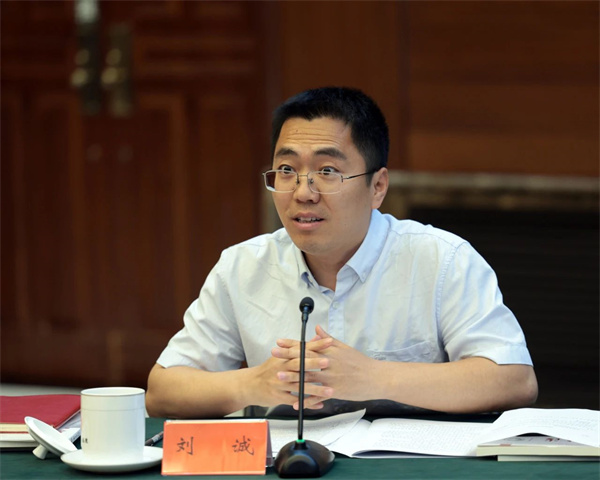

Legal experts and scholars Lan Lizhuan, Shen Jianfeng, Wang Shangming, Yang Dong and Liu Cheng offer commentary and engage in discussions with the judges. [Photo/court.gov.cn]
In his address, Zhang emphasized the need for courts to adapt to new circumstances and provide corresponding judicial services aligned with the demands of high-quality development. He outlined several principles for judicial practices under the new conditions. For conduct that is conducive to high-quality economic and social development, courts should provide legal protection, Zhang noted. In cases where the acts are not explicitly unlawful but impede healthy development, they should not be protected by law, and while handling controversial or complex disputes, courts should strike a proper balance between encouragement and regulation, prioritizing public interest and development goals, he said. In cases arising from new forms of social and interpersonal relationships, judges should make full use of existing legal norms to ensure appropriate regulation, Zhang added.
Zhang stressed that meeting these new demands requires higher standards of competence and legal literacy, particularly for young judges. He called on them to deepen their political and legal understanding, enhance their professional capabilities across multiple fields, and demonstrate a strong sense of responsibility and dedication. Judges must consistently uphold the rule of law by accurately verifying facts and applying legal provisions within the evolving policy environment, ensuring that judicial innovation remains strictly within legal boundaries, he said.
The event also featured a Q&A session, during which legal interns and assistant judges raised questions based on the presentations and received responses.


In the Q&A session, young legal interns and assistant judges raise questions based on the insights shared by the speakers. [Photo/court.gov.cn]
The forum was chaired by Gao Xiaoli, vice-president of the SPC. Representatives from the SPC, the youth rights department of the Central Committee of the Communist Youth League of China, and the Youth League Work Committee of central and State organs, a deputy to the National People’s Congress, and representatives from academia and the judiciary also attended the forum. Judges and staff from local courts participated via video link.
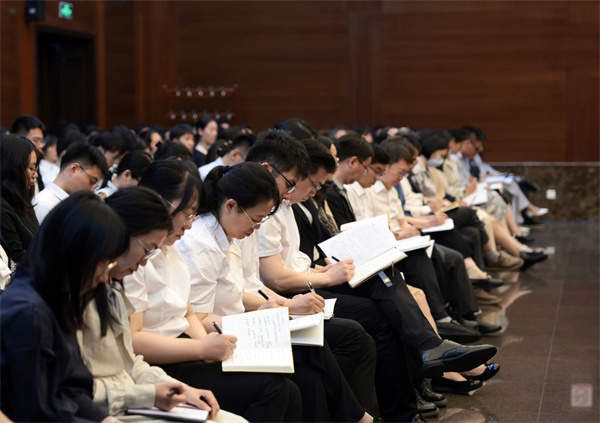
Scholars, representatives of the SPC staff, and legal interns attend the event. [Photo/court.gov.cn]







